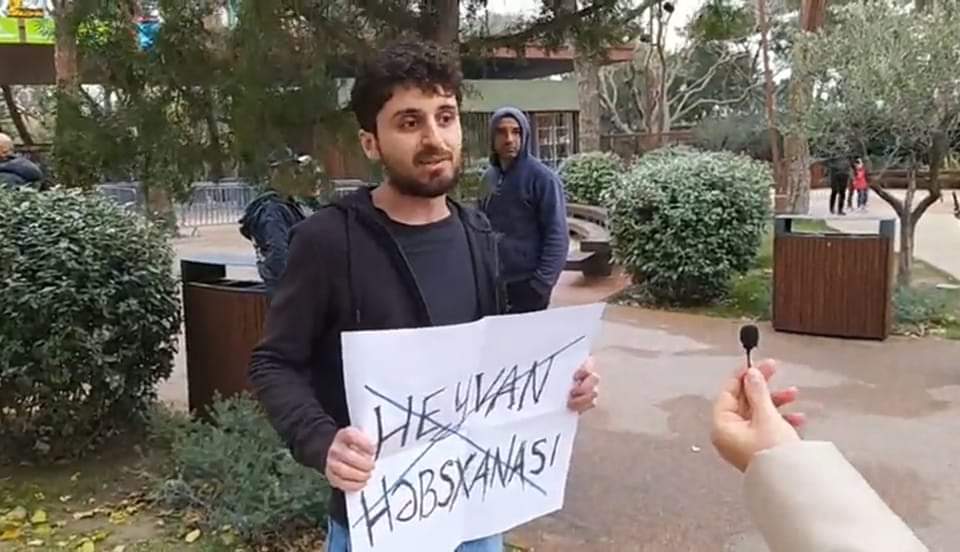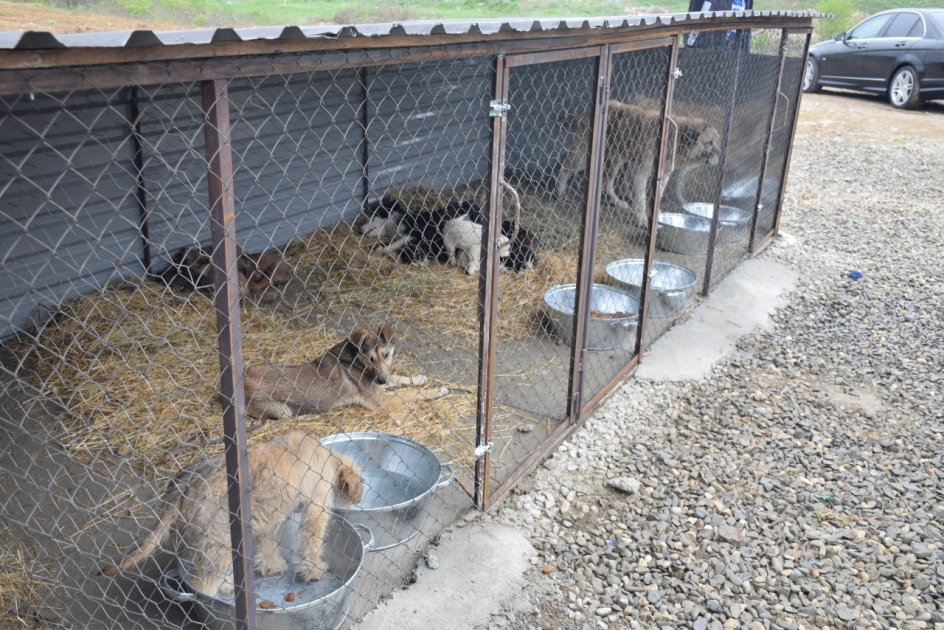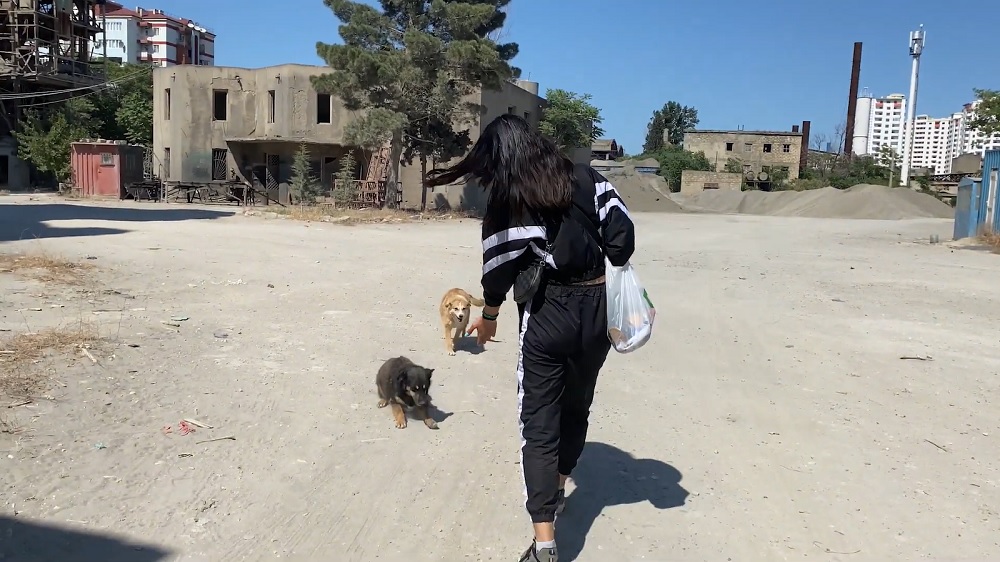Stray dogs in Azerbaijan – how to solve the problem?
Stray dogs in Azerbaijan
In early March, in the Gobu settlement of the Garadagh district in Baku, Azerbaijan, a nine-year-old boy was attacked by stray dogs. The child, who was taken to the hospital with serious injuries, underwent surgery and spent eight days in intensive care. Recently his condition improved, and he was discharged home.
- Will a new law solve the problem of stray dogs in Georgia?
- Why they kill stray dogs in Abkhazia and what can be done about it
- Every life matters: how people and animals save each other

This is not the first incident of homeless dogs attacking people. From time to time, similar news comes from different regions of the country. After each incident, the problem of homeless dogs temporarily becomes a main topic, discussed by the media and the public.
In May 2023, local media reported at least five cases of homeless dogs attacking people. Then, a member of the National Assembly, Tahir Kerimli, suggested selling stray dogs to Korea and China, “where dog meat is consumed”.
Although many see the solution to the problem in killing homeless animals, when such discussions flare up, animal rights advocates hold the government responsible for solving the problem.
“Main responsibility lies with the government”
Kamran Mammadli, an animal rights advocate, believes that stray dogs attack people because they are treated poorly.

“In Azerbaijan, people throw stones at dogs, shoot at them, and poison them; this is why they become aggressive towards people, to protect themselves. In other words, the problem isn’t with the dogs, but with the human society surrounding them — with us,” says Mammadli.
However, according to the activist, the main responsibility for the problem remaining unsolved for many years lies with the government.
“Instead of solving the problem, government services shoot the dogs. As a result, parents teach their children to throw stones at dogs. In other words, the government’s behavior towards homeless animals shapes aggressive behavior among ordinary people.
When a dog bites a person, there are calls to kill all the dogs in the country. TV channels and government-controlled media exaggerate such incidents so that the next time a dog culling campaign starts, public protest is weak,” explains the activist.

The International сonvention has not been followed for 17 years
The Azerbaijani government joined the European Convention on the protection of pet animals in 2007. According to the convention, the government was supposed to take necessary measures to reduce the number of homeless animals (through neutering) without causing them suffering, pain, or discomfort, and to create shelters for them. Although 17 years have passed since the adoption of these obligations, no state program to assist homeless dogs has been announced.
Sterilization of animals, medical examination, and opening shelters are considered responsibilities of executive authorities and municipalities. To solve this problem, a special department was created under the executive authority of Baku city, but there is no information on the resources it has, the amount of financial support it receives from the state budget, and how these funds are spent.

Animal rights defenders claim that the government agency, not accountable to the public, kills homeless animals instead of protecting them.
“Animal rights activists have repeatedly published videos showing how executive authorities shoot and poison homeless dogs in the streets,” notes Kamran Mammadli.
Local executive bodies deny these accusations but avoid making specific statements and do not respond to media inquiries.
“Toplan” – a shelter or something else?
The main center for homeless dogs in Azerbaijan is considered to be “Toplan”. Located on the property of the housing and communal services of Baku’s executive authority, the center consists of three administrative and utility buildings.

Animal rights advocates claim that there is a lack of transparency in the operations of ‘Toplan’. They say they cannot find out what happens to the dogs that are taken there. They accuse “Toplan” of killing homeless dogs.
The management of “Toplan” rejects these accusations. Back in August 2021, the center’s employees filed a lawsuit against four activists — Aynur Babayeva, Nidjat Ismail, Elkhan Mirzayev, and Ilham Nasirov. The plaintiffs demanded to hold the activists accountable for defamation and insults, either by fining them 100,000 manats [about $58,000] or by imprisoning them.
According to the verdict from a year-long legal battle, Ilham Nasirov and Elhan Mirzayev were fined 1,000 manats [about $580] each, Aynur Babazade — 1,500 manats [about $880], and Nidjat Ismail — 2,000 manats [about $1,170].
Although the activists appealed the court’s decision, the Appellate Court upheld the original ruling. The defense then filed a cassation complaint. The case is to be considered by the Supreme Court.
“I was surprised at how comfortably dogs live in Tbilisi”
Socio-political activist Nemat Abbasov has been living in the capital of neighboring Georgia for almost two months. According to him, he was surprised at how comfortably stray dogs live in Tbilisi.

“On almost every street in Tbilisi, dozens of dogs roam around. The dogs do not bother people, and people do not bother the dogs. All dogs are neutered and vaccinated. People feed them and take pictures with them. Because the dogs don’t feel any threat to themselves, they don’t behave aggressively. Unfortunately, in Azerbaijan, which is a half-hour flight away, dogs are shot and subjected to violence. I am not surprised that stray dogs in our country can be aggressive,” says Abbasov.
In most European countries, governments work with animal rights advocates to neuter, vaccinate homeless dogs, create shelters for them, and find them homes.
“If our local executive bodies also neuter stray dogs, there will be fewer animals on the streets after some time. If we ban the sale of dogs and advocate for adopting animals from shelters, the problem will eventually be solved. However, the Azerbaijani government does not have any roadmap in this regard.
Yesterday in the village of Novkhany in the Absheron district, executive authorities shot about ten dogs that were tagged in the ears, sterilized, and vaccinated by animal rights defenders.
This means that the state is not only unwilling to work in this direction but, on the contrary, is hindering animal rights activists from solving the problem on their own. I’m not even talking about the fact that shooting animals is illegal,” says Kamran Mammadli.





















